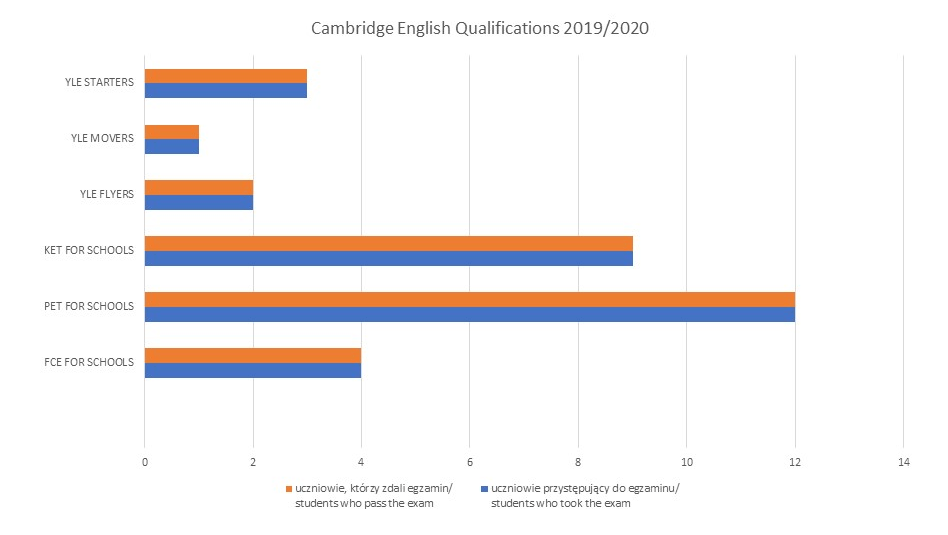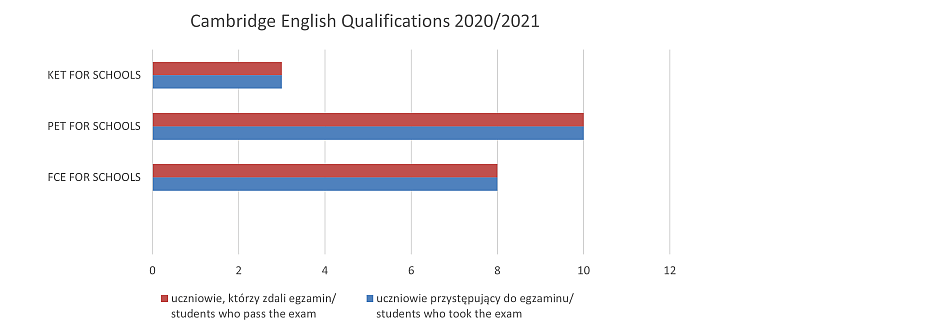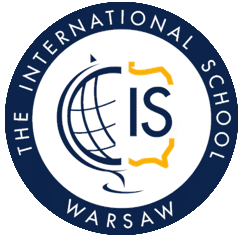environment of development and effective and intuitive learning of foreign
languages through immersion.
MULTILINGUAL PRIMARY SCHOOL AND CANADIAN PROGRAM
Children in grades from 0 to 8 carry out classes in parallel in accordance with the Polish curriculum by the Minister of National Education and with the Canadian curriculum, the highest standard of which is confirmed by the world PISA tests. Due to full immersion in English, children spontaneously acquire the language and easily achieve bilingualism. Didactic classes are carried out in Polish by teachers with full qualifications and in English by teachers who are not only Native Speakers, but also educators with many years of experience. The goals we pursue as part of the Canadian program at The International School are:
1. Development of students’ ; communication skills and building their linguistic
certainty.
2. Learning and practicing skills useful in adulthood, i.e.:
– comprehensive project preparation,
– information management using traditional and modern sources of information,
– the ability to make a presentation and participate in a debate in English,
– an unconventional and creative approach to the tasks.
3. Adjustment of program to the needs of students who are not native speakers.
4. Teaching foreign languages by immersion while implementing the requirements of
the CEFR (CEFR) scale and preparing students for international exams.
WHAT DISTINGUISHES CLASSES IN THE INTERNATIONAL SCHOOL?
Learning foreign languages by immersion
Native speakers
Canadian Program
Foreign project trips
School without bells
Bilingualism and language certificates
Care of a psychologist
Double diploma respected in Poland, USA and Canada
At The International School, a child is not another "number on the list. Every student is an important member of our school community. Therefore, the way in which classes are organized differs from the standard teaching model, where the teacher is a master and the student is only a listener. The Canadian program puts the student first. It consists in presenting the problem and finding solutions together. Children learn new things by experiencing according to the principle of „hands-on learning”
CLASSES BY PROJECT METHOD
In grades 0-3, students ask questions and experiment for answers on their own. In this way, they develop creative thinking, acquire knowledge in practice and shape skills to work in a team. When carrying out various tasks and developing projects, children do not have to sit at their desks which often strain the spine and reduce interaction with peers. Instead, they can sit freely on a soft carpet or in another convenient place and work alone or in a group using modern teaching aids.
We have created an interesting program of educational workshops and trips for all grades. We carry out the following projects:
- foreign: weekly project trips to the UK and France dedicated to grades 4-8
- local: Polish and English-speaking scientific, theatrical, patriotic-historical and natural projects, e.g.:
– The Little Explorer Club coordinated by the Copernicus Science Centre,
– Gotta Get Engineering, 3D printing classes during which children design and print three-dimensional models themselves,
– School Landscapes and The Night of The Owls during which children learn about flora and fauna, environmental care and create an animal-friendly environment on their own,
– developing creativity and manual skills such as painting, ceramic, carpentry and laboratory workshops for children,
– trips to museums, Warsaw theatres for children and important places on the map of Warsaw and the surrounding area, i.e. the Warsaw Uprising Museum, Museum of King Jan III’s Palace at Wilanów,
– meetings with famous people from the world of art and science which give children an opportunity to learn interesting professions and broaden their horizons.
WE USE MODERN TEACHING METHODS
During the classes, children use modern teaching aids such as multimedia boards, educational journals, laptops, laboratory equipment and sensory aids. Microscopes, mini greenhouses and 3D printers also used for project work. We equip the school with more modern aids for learning mathematics, foreign languages, and sports equipment.
We subscribe to National Geographic magazines and valuable books for children and parents are available not only during classes, but also in our school library.
- We widely use multimedia (smart board, laptops, e-books and online content)
- We teach children the latest technologies (the basics of programming with photon robot, 3D printing workshops)
- We use e-learning „Dell Connected Classroom”
- We focus on practical skills – we promote hands-on learning in the Canadian program
WE TEACH FOREIGN LANGUAGES USING THE IMMERSION METHOD
We teach in 5 languages: English, Polish, French, German and Spanish. What does this mean in practice?
In addition to immersion in English, children also learn about a second foreign language (Spanish, French or German) as part of teaching activities. This allows them to start their adult life with the knowledge of as many as 2 foreign languages at an advanced level comparable to their native language skills.
- We implement the formula of bilingualism using the method of full language immersion
- We provide English additional classes and preparation for language contests
- We prepare for exams organized by the University of Cambridge (YLE, KET, PET, FCE)
- We implement a Canadian curriculum based on Keystone and Cornerstone textbooks
- We have public debates in English
- We organize foreign project trips to the UK and France
WE DEVELOP STUDENTS ‘INTERPERSONAL SKILLS
We believe that success in adulthood is the results of not only adequate education, but also the ability to communicate clearly, to organize time and a sense of responsibility for yourself and others. Therefore, together with parents, we pursue educational goals and teach children how to show feelings, interpret the behavior of others and communicate effectively.
Children also have a chance to develop artistically. They practice acting, singing, dancing during additional activities. Students take part in theater plays (i.e. school musicals, shadow theatre), thanks to which they improve their skills of public speaking, build confidence and master foreign language while having a great time. Our students are also successful in inter-school English and recitation contests.
- We carry out relaxation and mindfulness classes (mindfulness training)
- We support diverse interests and skills of students through additional and artistic activities
- Our education is based on the cooperation of the school with the family and the joint building of the value system
- We educate students to be aware of their skills, open to other cultures and ready to continue their self-education in Poland and abroad
WE TAKE CARE OF THE INDIVIDUAL DEVELOPMENT OF EACH CHILD
Classes of up to 18 students allow the teacher to take an individual approach to each student and help solve problems.
We prepare children successfully for school and external contests of: Math (Math Kangaroo, Math Alfik), Language (Leon, Olimpusek), Natural Science (National Competition of Natural Sciences Świetlik) and the international Odyssey of the Mind promoting creative problem solving and group work.
- Children with an opinion on exceptional educational abilities receive additional individual support and the opportunity to develop their talents
- We have developed an interesting program of extracurricular activities in Polish and English
- We run the school subject clubs and Olympic clubs
- We carry out classes supporting the individual development of the child including compensatory and remedial classes
TEACHING RESULTS
LANGUAGE PROFICIENCY CONFIRMED BY CERTIFICATES
The most important benefits your child receives during the Canadian program classes at our school is the ability to communicate in English freely – using English becomes as natural as the mother tongue. It is worth noting that the child learns a foreign language not only through the subject program, but also through discussions or project classes, so that he easily participates in the conversation and cope in any situation.
In our language school, we teach language not through painstaking teaching of words and grammar, but by immersion in English, that is, speaking, listening and interacting. However, this does not mean that we underestimate the importance of knowledge of grammar. On the contrary, we teach the principles of English grammar simultaneously to the lexical-linguistic program. Nevertheless, the child often begins to use grammatical forms fluently before even naming them and learning on grammar classes. This is typical when learning a language is similar to learning a mother tongue and it allows the child to achieve better results more easily than with a standard teaching model.
A high level of English teaching allows children to obtain YLE, KET, PET and FCE certificates in primary school. In cooperation with the British Council, our students have been taking Cambridge Assessment external exams for many years and passing them with distinctions. The results are as follows:


DOUBLE PRIMARY SCHOOL GRADUATION CERTIFICATE
We combine lessons in accordance with the guidelines of the Polish curriculum by the National Ministry of Education which is implemented effectively and confirmed by the high results on the eighth-grade exam, with the activities conducted by the project method according to the Canadian curriculum from the province of Ontario, which is based on subjects such as:
- Language Arts
- Mathematics
- Social Studiess
- Science & Technology
- Arts & Crafts
Our school, in addition to the Polish curriculum, holistically implements the Canadian curriculum ( Keystone, Cornerstone) based on the textbooks used in schools in Canada and the learning of foreign language by the immersion method and its use in everyday situations. This distinguishes us from other schools which describe the increased number of English hours as an international program.
As part of the Canadian program, our students improve their knowledge from subjects with methodology, way of acquiring knowledge, terminology and material range tailored to teaching abroad using full sources, books, multimedia support and publications being developed in Canada.
Thanks to this:
- students gain very good results on the eighth-grade test and receive the primary school graduation certificate according to the Polish curriculum (MEN)
- at the end of each class children receive report cards confirming their progress in learning and Canadian certificates respected in Canada and the USA,
- during their studies, students obtain language certificates, i.e. YLE, PET, KET, PCE.
Our primary school graduation certificate is respected not only in Poland, but also in Canada and the USA, and the acquired language proficiency gives children unlimited opportunities for further development.
GRADUATE OF INTERNATIONAL PRIMARY SCHOOL
Due to the implemented projects, each child can develop their interests and ability to work in a team. Graduates of the International School are resourceful young adults who are able to find themselves in any situation in life and are prepared to move to any curriculum they will choose in the future. They achieve very good results in learning at Polish and foreign universities and respect the other person and the diversity of cultural customs.
Characteristics of The International School graduate are:
- Academic –can communicate clearly in Polish and English; uses modern communication techniques but also willingly reads a lot; reaches for thematically various reading in different languages; can discuss and listen effectively and reflectively; solves problems effectively and thinks critically; makes decisions consciously, manages time effectively.
- Socially – recognizes and respects the individual differences of each person and takes personal responsibility for the positive and negative effects of his decisions; nurtures the habits of a healthy lifestyle; takes care of his health and safety and cares for others.
- Civil – is aware of his role in society, country and the world by actively participating in the life of the local (school) community; is happy to deepen his knowledge of the diversity of the immediate environment, country, world; discovers own potential and opportunities to influence the development of the world around.
School? We encourage you to make an
appointment for an individual meeting on the premises of our school.
Contact us!

